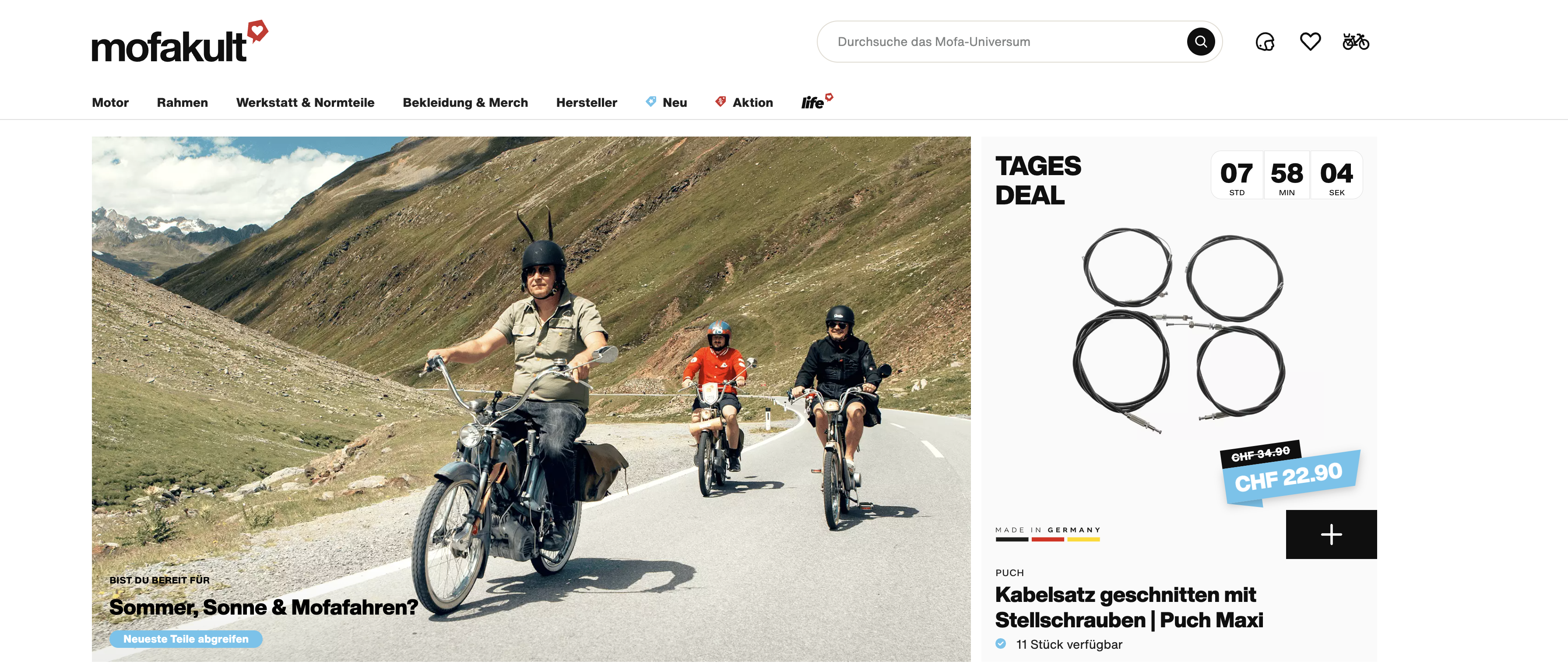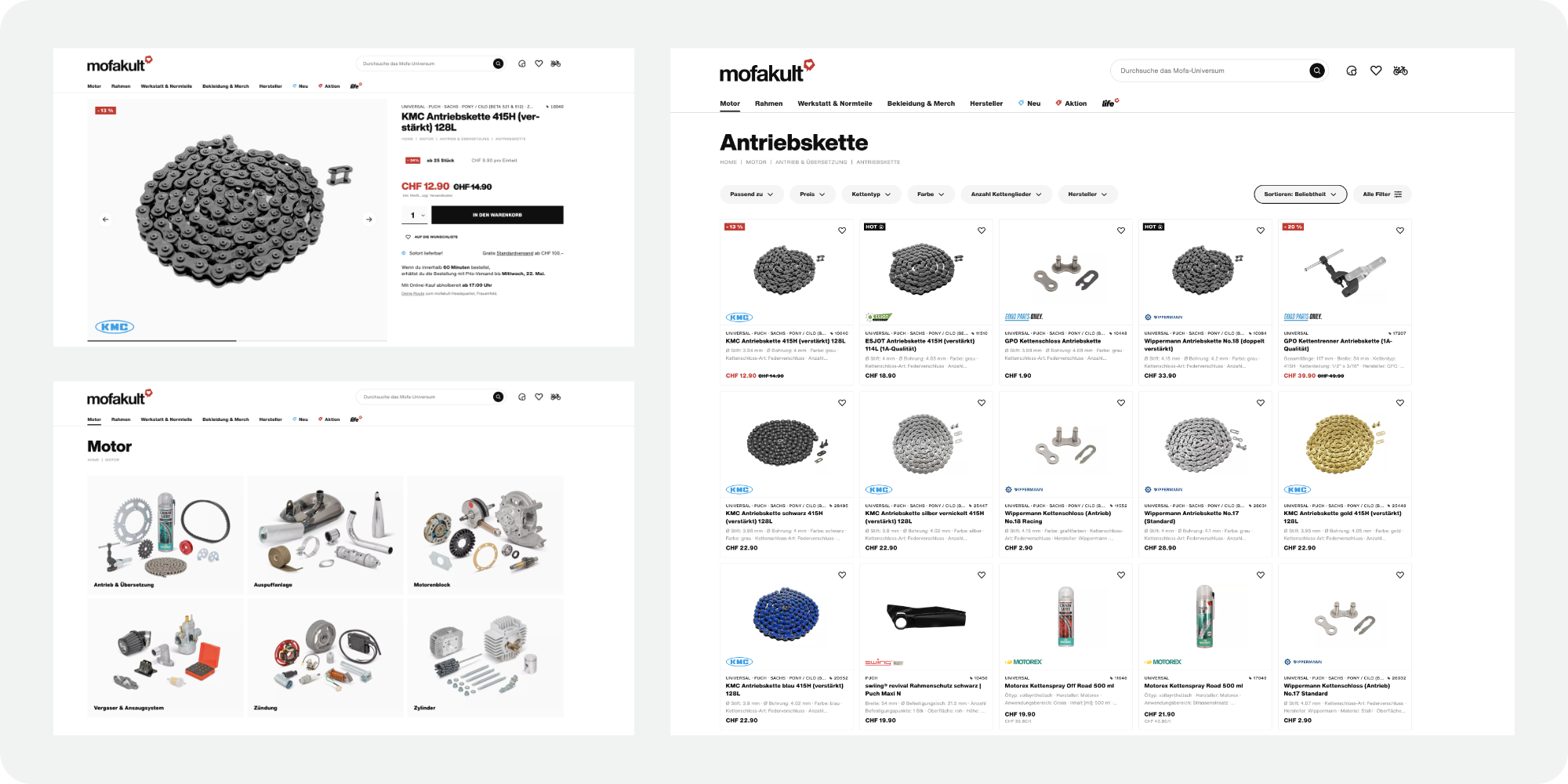
mofakult sells spare parts for two-stroke mopeds from the 1960s, 1970s, and 1980s. Many of these parts are no longer available on the market, but mofakult develops and introduces improved versions, ensuring these cult vehicles can remain operational. Founded in 2010 in Switzerland as a hobby project, the company has grown significantly over the years – initially a small venture, it has expanded and now employs 41 people.

mofakult faced several significant issues with Magento 1.9 CE. The performance was a major problem, both in the back-end and front-end, causing inefficiencies and poor user experience. Additionally, Magento 1.9 had reached its end of life (EOL) and no longer received security updates, posing a risk to the platform’s stability and security. Scalability was another challenge, as the system could not support the company’s goal of expanding into new markets. Moreover, the ERP plugin lacked strict processes, allowing manual adjustments to stock levels, which could lead to chaos and hinder further growth.
mofakult’s main goal was to expand its market presence in Europe, starting with Germany, Austria, and France. The company also plans to launch in an additional nine countries in 2024. mofakult needed to professionalize its internal processes to support this expansion, which it achieved by introducing an ERP system – system enables near real-time synchronization of orders, customers, and products between the ERP and Sylius, streamlining operations and improving efficiency.
The main challenge for Fusonic was to implement a content commerce strategy that integrated not only products but also engaging stories featuring these products. Additionally, mofakult needed a robust CMS to manage this content effectively. Proper scalability was crucial, as each target country required its storefront to comply with EU regulations, which mandate displaying country-specific tax information to users in their respective countries.

mofakult and Fusonic chose the Sylius back-end because it is renowned for having the most active and supportive community in the PHP eCommerce ecosystem. Moreover, Sylius offers highly developer-friendly code, making it easier to customize and scale according to their specific requirements. This combination of strong community support and ease of development made Sylius the ideal choice for the mofakult project.
Technical Architecture Overview:
Thanks to our partnership with Fusonic, our new online shop boasts lightning-fast performance, a sleek and fresh interface, and seamless adaptability. It really propelled user experience to the next level. With its autoscaling infrastructure, we now feel ready to conquer new markets.
The project resulted in significantly higher employee satisfaction, as the wait time in the Sylius back-end is now nearly zero compared to the 5-10 second wait times experienced with Magento 1. For end users, page load times have been reduced by over 80% after the initial load of the single-page application, with plans to improve the initial load time soon. This has resulted in a very responsive front-end experience. Additionally, there is now much better support for mobile devices. Thanks to our autoscaling Kubernetes infrastructure, there is no difference in response time during traffic peaks. User feedback has been very positive following the relaunch.